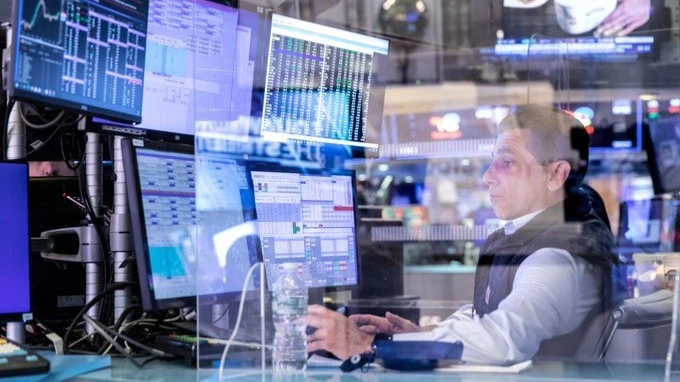Wall Street's "fear index" at highest since April, investors sell off bank stocks

The main indicator of fear on Wall Street - volatility index Cboe (VIX) - rose by 6.7% to 27 points, reaching the maximum since April, when Donald Trump stirred the markets with the announcement of increased duties, writes Bloomberg. Investors are under pressure not only from the prolonged shutdown in the U.S. and increased trade tensions with China, but also from theproblems of regional banks.
The index reflects investors' expectations of S&P 500 volatility over the next 30 days. The level of 20 points is considered psychologically important: holding in the range of 20-21 points may signal the approach of a period of increased turbulence, Barron's wrote.
Futures on the S&P 500 collapsed by 1.1%, stock contracts on the Nasdaq 100 fell by 1.3%.
What's happening in the banking sector
Shares of regional banks Zions Bancorp and Western Alliance lost more than 1% and 3% on the premarket, respectively. The fall continues after the day before, on October 16, it became known that Zions will write off $50 million of debts of troubled borrowers among businesses in the third quarter. And Western Alliance accused one of its borrowers of fraud. The sector remains under pressure amid the recent bankruptcies of auto lender Tricolor Holdings and auto parts maker First Brands, Barron's explains.
Securities of another regional bank Banc of California fell by 3.6%. SPDR S&P Regional Banking ETF lost 1.4%.
Bank of America shares fell 2.3 percent, Citigroup fell 2.2 percent, Morgan Stanley fell 1.3 percent and Wells Fargo fell 1 percent.
On Friday, investors will have a new opportunity to gauge the health of regional banks as a number of lending institutions report earnings, including Comerica and Fifth Third, CNBC writes.
What the analysts are saying
The actual losses at Zions and Western Alliance banks were relatively small, but still hurt investors' underlying fears, especially when combined with the collapses of Tricolor and First Brands, Bloombergexplains . "A series of reports of loan fraud renewed a simmering debate on Wall Street about whether the era of unbridled capital will lead to a reckoning for banks and nonbanks alike," according to Yizhu Wang, a profile journalist at the agency.
Fluctuations may also be intensified by the fact that it is Friday: investors are trying to hedge against possible bad news that may appear over the weekend, suggests Bloomberg."Market movements are also likely to intensify as we get closer to the weekend," said Raphael Thouin, head of capital markets strategy at Tikehau Capital, "After this year's rally and amid high valuations, the temptation to lock in profits and consolidate gains from the start of the year is great.
The news is supplemented.
This article was AI-translated and verified by a human editor
